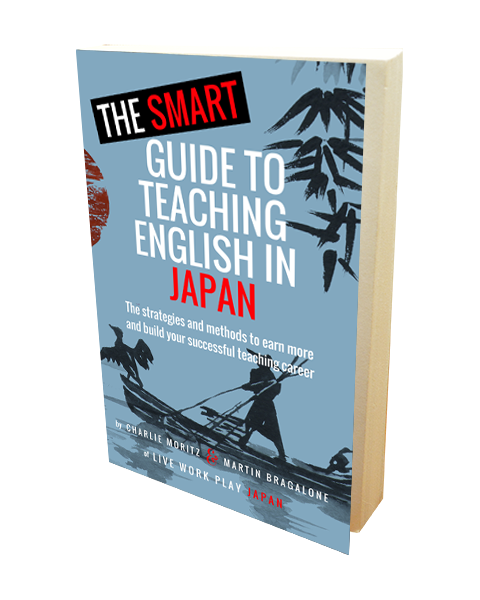Japanese Emperor Akihito to Step Down: Why Now?
Japan’s Emperor Akihito “Heisei” made a historic public announcement that he wishes to step down due to old age and declining health. The Japanese constitution only allows for abdication of the throne after the death of the sitting emperor.

Emperor Akihito announces that he is hoping to step down.
Can he actually do it? What does it mean for Japan?
If he can actually pull it off, Akihito would be the first emperor of Japan to step down in over 200 years.
If you do or plan to live in Japan, keeping up with Japanese affairs can be really challenging, even if you know Japanese. Seeing beyond the screen of subtleties and centuries of traditions is no easy task. But as respectful residents or hopeful residents, or even for you who just want to travel in Japan, it is really worth it to know what is going on.
At Live Work Play Japan we usually write about lifestyle for foreigners living in Japan, but every now and then something really important surfaces. We feel it is absolutely imperative to understand not only what is happening but to know what that means for those of us staying here. We hope this series on the emperor and the current political climate will help you not only better understand Japan, but to see how the viewpoints of Japan by both Western and Asian media often differ a great deal from the Japanese perspective.
Why is the emperor stepping down now?
Japan’s Emperor Akihito had declared that he would like to step down due to concerns over his health despite the fact that by Japanese law the Japanese emperor will serve until death. After the announcement many are asking, “Why now?”
As the Prime Minister Abe Shinzo moves to change the Japanese constitution to allow for Japan to declare war, Western media publications have speculated that the emperor is aiming to slow Abe down by forcing the government to work on allowing for his abdication. Meanwhile, the Japanese mainstream media has made very little mention of this narrative. Is it just a conspiracy theory or is there some truth to these speculations?
Can Akihito’s son, Prince Akishino be his successor? The prince has no sons, only a daughter. Will we see an empress on the Japanese throne? Many in the right wing are looking to stop the Akihito’s granddaughter, Princes Kako from ascending to the throne.
While most of Japan seems to be in favor of Emperor Akihito stepping down, not everyone is so eager to see the emperor abdicate.
According to a recent poll in August of this year by the 産業新聞 Sangyou Shimbun and FNN (Fuji News Network) the majority of the population of Japan would be in favor of amending the constitution so that Emperor Akihito may step down:
“天皇陛下の生前退位「制度改正急ぐべき」70・7% 「必要なら憲法改正してもよい」84・7%”
Regarding the emperor retiring before his natural death:
“The system should be changed quickly to allow it” – 70.7%
“If necessary, it would be ok to amend the constitution to allow for it” – 84.7%
Asahi Shimbun also ran a similar poll. According to the poll by Asahi 84% of Japanese support the emperor’s decision to retire early.
Who is the emperor to tell us when he should retire anyways?
Meanwhile, the right-wing is questioning whether the emperor has the ability or right to make statements about the law, including his personal desire to retire, as it is against the constitution as it stands.
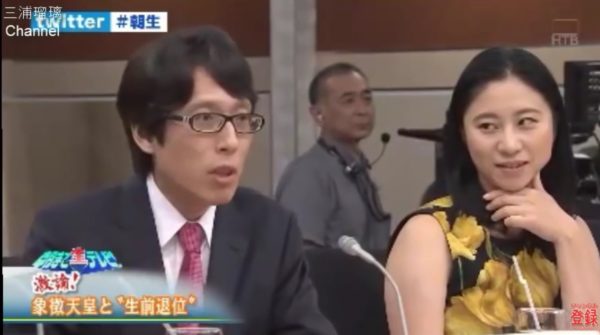
Debate on TV about the constitution. Her face says: “You have got to be kidding me…” (Japanese)
Watch here as Japanese conservative and progressive journalists duke it out over unsolved questions Japan has been harboring since the war. They talk about:
What is the emperor’s role in Japan?
Is he just an old Japanese tradition, and if so why does Japan need him?
Can he resign at all even if he himself and the majority of the population of Japan is in favor of him doing so?
One claim being made is that Emperor Akihito only told imperial staff in private that he wanted to retire, and this was overheard and leaked to the media. Then according to this narrative, he was forced to publicly announce his desire to retire early.
The argument against this being made here is that the if this story hadn’t been leaked in the first place, no one would be even discussing the Tennou seizen taii/Tennou seizen joui 天皇生前退位・天皇生前譲位 or “Pre-death abdication of the emperor.”
5 years + of reports that Emperor Akihito will retire early.
Although, the NHK news reports that the emperor has been hinting at his desire to abdicate as long as 5 years ago, it was only now that he made a public declaration that he does plan on abdicating.
Age 82, the Japanese emperor has his share of health problems. Bloomberg reports that, “He (Akihito) underwent almost four hours of surgery for a successful heart bypass in 2012, and was hospitalized for pneumonia the previous year.”
Not only that, but Akihito has survived one battle with cancer of the prostate. The former Emperor Hirohito, Akihito’s father, is reported to have died of intestinal cancer in January of 1989 at the age of 87. Yet others speculate that the current Emperor Akihito is in robust health for his age and that his health is not the primary reason for his intent to abdicate.
So what is the real reason?
The third public address by a Japanese Emperor in history.

The Showa Emperor, Hirohito, Emperor Akihito’s father
You can see the original speech from the Emperor here: 「お気持ち」o-kimochi My Sentiments.
If he does step down, this leaves Japan with no choice but to replace him, most likely with his son or another relative. The situation is a bit more complicated as Akihito’s son is a less than ideal pick to lead. The primary reason being is that his next in line would almost certainly be his daughter as he has no sons.
Will this generation see a Japanese empress on the throne?

Empress Kako
The Telegraph reports, “There would be other complications. His successor and eldest son, Crown Prince Naruhito, only has a
daughter. The idea of Japan having an Empress would provoke strong opposition, particularly within the conservative ruling party.”
We do not know much else about the speech saying that he wishes to abdicate other than that he had cancer and he may even be worrying that the cancer will resurface. This break from tradition may introduce another issue, that Japan is still a largely patriarchal society, and for many the thought of having an Empress of Japan is unacceptable. Others welcome the idea of becoming a more modern Japan, and accepting a change in the roles of women.
The Imperial Palace has repeatedly insisted that “Emperor Akihito will not step down.”
The Imperial palace even as late as July of this year insisted the emperor would not step down. A new emperor means a lot of change and for whatever the reason may be, the palace did not want the public to have the perception that such a change would take place.
Imperial Household Agency Deputy Chief Shinichiro Yamamoto denied the rumors that the Heisei Emperor, Akihito would step down. He even stated that the emperor has “No desire to step down.”
Maybe they should get their story straight.
The end of one era makes way for the rise of the next

The unveiling of the new era of 平成 Heisei: Achieving peace
For the most part, emperors died of natural causes and the next one would be selected to run in place. What is so shocking about Emperor Akihito (明仁天皇, Akihito Tennou) is that he is one of a select group of emperors to step down on his own accord. Most stepped down when they had committed some sort of political blunder or when their health was in extreme jeopardy.
We know that Emperor Akihito has struggled in the past with cancer but even in his 80’s, it would actually appear that he is well enough to carry about his regular functions. That being said, stepping down now was the last thing the Japanese public was expecting.
Whatever does happen, if this emperor steps down, it will usher in a new era for Japan.
Akihito became Emperor at the end of 1988 with the death of his father, Emperor Hirohito who was known as the 昭和天皇 Showa tennou (Showa Emperor). Each Emperor has a new era named after them. Thus the Showa Jidai (昭和時代, Showa Era) transitioned to the Heisei Jidai (平成時代 Heisei Era) with the start of Emperor Akihito’s reign.
Probing his majesty’s will: Is Emperor Akihito stepping down only for health reasons or is he protesting new constitutional reform policy?
There is speculation that Emperor Akihito’s battle with cancer over the years may be the primary concern. Although, in Japan it is often reported that Emperor Akihito strongly opposes the push to repeal Article 9 of the constitution, and many believe that his stepping down is an act of protest against the amendment of the constitution to allow war.
The Japanese emperor is only to be a “Symbol of the Nation” but he has a real political role.
One caveat about discussing the current emperor’s political views are this: The Japanese constitution strictly forbids the emperor from engaging in any political activity. He is supposed to take orders from the cabinet and not the other way around.
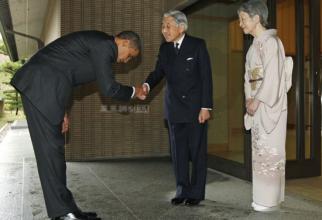
Emperor Akihito, Empress Michiko and President Obama. This was the bow that went around the world as Western media harshly criticized Obama for bowing “too low” (even though it is totally normal in Japan…)
See below for a detailed translation of a section from the Japanese constitution with reference to the emperor. One highlight to note are that the Japanese prime minister IS APPOINTED by the emperor. Now, it is clear that the Japanese Diet (Parliament) first designates him or her.
The following is a translation of a section of the constitution from the website of the Prime Minister of Japan and his Cabinet:
THE EMPEROR
Article 1. The Emperor shall be the symbol of the State and of the unity of the People, deriving his position from the will of the people with whom resides sovereign power.
…
Article 3. The advice and approval of the Cabinet shall be required for all acts of the Emperor in matters of state, and the Cabinet shall be responsible therefor.
Article 4. The Emperor shall perform only such acts in matters of state as are provided for in this Constitution and he shall not have powers related to government.
….
Article 6. The Emperor shall appoint the Prime Minister as designated by the Diet.
The Emperor shall appoint the Chief Judge of the Supreme Court as designated by the Cabinet.
…
Although the main functions of the Emperor seem to be just carrying out ceremonial functions such as giving awards and appointing (already predesignated) political figures, he himself is not a political figure.
But he sure does get real close to it.
The take away from this is that Japan must have a sitting Emperor. Not having an Emperor is not an option as long as the Japanese constitution stays as it is.
Commemorating 71 years since the last Emperor Hirohito declared Japan’s surrender to the Allied Powers.
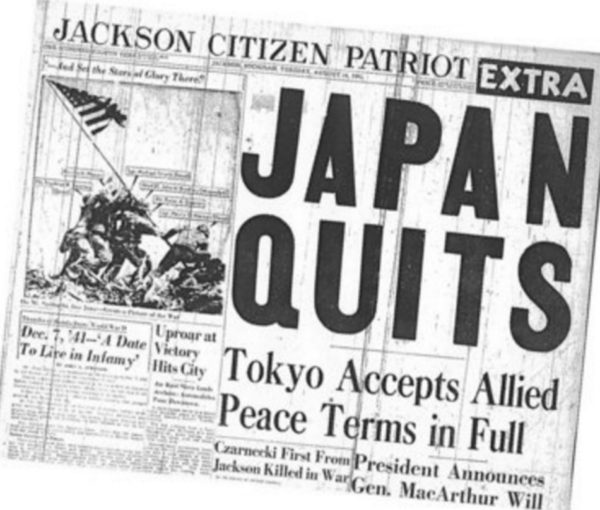
For the first time since the end of World War II, the phonograph by the reigning Emperor Hirohito was released to the public this year as Japan and the world commemorate 71 years of peace.
Forbes reports that the current Emperor Akihito (Hirohito’s son) himself likely ordered the release of the infamous phonograph of the Showa Emperor Hirohito. It would be the first time the full audio of what the former Emperor Hirohito had said was released publicly.
Emperor Akihito chose an interesting time to release this audio. Not only do we commemorate 71 years since the end of World War II, but right now a very controversial bill has just passed in Japan’s Lower House that will amend the constitution. This change will allow Japan to use military aggression and if necessary war in order to solve international disputes for the first time since the constitution was first publicly declared in 1946.
Is Emperor Akihito trying to tell us more than he appears to be saying?
Forbes reports that the Emperor choosing now of all times to release the audio could be a subtle reminder to the public and in particular the right wing lead by prime minister Abe Shinzo to remember the devastating consequences of war. Again, this is merely speculation that we plan to address in more detail in Part II.

Emperor Akihito looks towards Prime Minister Abe
One piece of support for this theory is that the emperor is legally required to serve until the end of his natural life according to Japanese law. He cannot simply quit as the law is now. The constitution only allows posthumous abdication – he can only be succeeded after he passes away.
Thus if the Emperor has Abe’s cabinet work on allowing him to step down now, it could slow them down from altering the constitution to allow Japan to go to war again. With all the controversy surrounding the Emperor stepping down (is it legal? how can it be done in a proper way?) it certainly will be a challenge for Abe and the Japanese Diet to get it done by the end of this year.
Abe will help the emperor step down.
The Nation, a Thai based media outlet (in English), has reported that the government plans to introduce special legislation to only allow Akihito to abdicate before his death without amending the constitution, as this would be extremely time consuming and difficult.
The Japanese online news publication, the 2 Channel News Navigator has corroborated that prime minister Abe is moving to only allow for this emperor to abdicate but to not allow this to become a precedent in Japanese law.
The Guardian reports the same, with a quote from Purnendra Jain arguing that “The government has little option than to make changes in the law for at least the current emperor to retire.”
If that is the case, this will likely slow Abe down in trying to amend the constitution. This won’t stop the move of altering Article 9 (that bars Japan from declaring an offensive strike or war on other countries) but it would slow it down.
The future of Japan.
With the Emperor wanting to abdicate, will this have any effect on the controversial debate over Article 9, after all these years. Is the emperor taking a side on the issue?
Thank you for reading about Japanese Emperor Akihito. Stay tuned for the next part of our series on this topic, where we will be looking at the following questions as objectively as possible referencing the often contradicting narratives told in Western media, Japanese left-wing and right-wing media.
In part two we will be looking at questions such as:
- Is there an Abe – Emperor Akihito stand-off over Japan’s ability to declare war?
- Japan’s “Pacifist Constitution”: As the ultra-controversial Article 9 that denounces war is about to be changed, is the Emperor putting up a last stand fight to defend it?
- Who really made the Japanese constitution: The US occupiers or Japan? Why does that still matter?
- Is Japan at risk of going to war again and if so, with whom?
- Where did the Emperor really come from anyway?
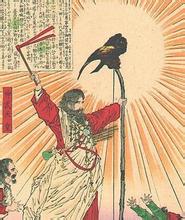
Legendary Emperor Jimmu, the supposed first emperor of Japan and son of Amaterasu, the sun goddess according to Japanese Shinto mythology
We will talk about the legendary account of Emperor Jimmu, the son of Amaterasu the sun goddess, all the way to the Meiji, Showa and Heisei Emperors.
Please leave us your comments and questions below. We would love to hear what you think and what you want to know about Japan, the Emperor and Japanese affairs.

